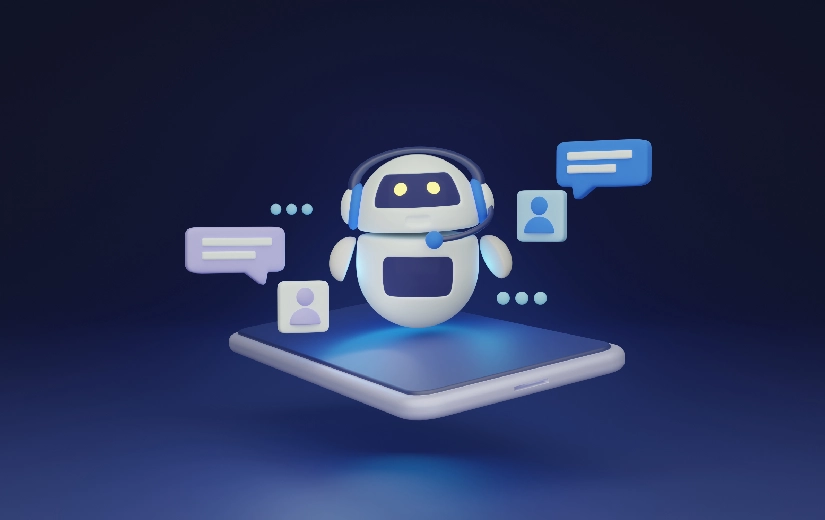In today’s fast-paced digital landscape, businesses are constantly looking for innovative ways to engage customers and improve their marketing strategies. One of the most revolutionary advancements in this field is the use of chatbots.
These AI-powered virtual assistants are transforming how brands interact with their audience, providing instant responses, personalized experiences, and seamless support.
By integrating chatbots into customer engagement strategies, businesses can enhance user experiences, increase sales, and automate numerous marketing functions.
With artificial intelligence (AI) and machine learning advancing rapidly, chatbots are no longer just simple scripted programs but intelligent tools capable of understanding customer needs and responding effectively. This blog explores how chatbots are redefining customer engagement in marketing and the key benefits and challenges they bring to businesses.
The Role of Chatbots in Modern Marketing
The way businesses interact with customers has evolved significantly. Traditional customer service methods, such as phone support and emails, are being replaced by AI-driven chatbots tools that provide instant assistance. Marketers now leverage chatbots to enhance engagement, provide personalized experiences, and automate repetitive tasks.
Some key aspects of chatbot-driven marketing include:
- Real-time Customer Assistance: Chatbots can provide instant support, resolving common queries without human intervention.
- Automated Lead Generation: Chatbots can capture visitor details and qualify leads efficiently.
- Personalized Marketing: AI-powered chatbots analyze user behavior and deliver tailored content, offers, and recommendations.
As businesses continue to embrace AI and automation, chatbots are becoming an essential tool for effective marketing strategies.
Key Ways Chatbots Are Transforming Customer Engagement
a. 24/7 Customer Support & Instant Responses
One of the biggest advantages of chatbots is their ability to provide round-the-clock customer support. Unlike human agent who work limited hours, chatbots operate 24/7, ensuring customers get assistance anytime they need it. This leads to higher customer satisfaction and retention.
- Reduces response time and eliminates waiting periods.
- Handles multiple queries simultaneously without delays.
- Enhances brand reputation by offering seamless support.
For businesses dealing with global customers in different time zones, chatbots eliminate the challenge of availability by providing uninterrupted assistance.
b. Personalized Customer Interactions
Modern chatbots use AI and machine learning to analyze user behavior and preferences, allowing businesses to provide highly personalized experiences. Instead of generic responses, chatbots tailor their interactions based on previous conversations, purchase history, and browsing patterns.
- Chatbots recommend products based on customer preferences.
- Users receive targeted offers and discounts, increasing conversion rates.
- AI-driven chatbots improve customer satisfaction by offering relevant solutions.
Personalization fosters stronger customer relationships and enhances the overall user experience, making chatbots an invaluable marketing asset.
c. Lead Generation & Qualification
Chatbots play a crucial role in automating lead generation. By engaging website visitors through interactive conversations, they capture valuable customer information and qualify leads before passing them on to sales teams.
- Chatbots ask pre-set questions to understand customer needs.
- They filter out unqualified leads, saving time for sales representatives.
- Chatbots nurture leads by providing relevant content and recommendations.
This automation of lead generation allows businesses to focus on high-potential prospects and improve conversion rates.
d. Automating Marketing Campaigns
Chatbots can act as virtual marketers, helping businesses automate various marketing activities. From social media engagement to email campaigns, chatbots enhance customer interactions and boost brand visibility.
- Social Media Engagement: Chatbots can reply to customer comments, answer queries, and provide product details on platforms like Facebook Messenger and Instagram.
- Email Marketing Automation: Chatbots can send personalized follow-up emails based on customer interactions.
- Interactive Promotions: Chatbots can run contests, giveaways, and surveys to engage customers effectively.
By integrating chatbots into marketing campaigns, businesses can streamline operations and drive better engagement.
e. AI Screening for Smarter Customer Segmentation
AI screening enables businesses to filter and segment customers based on behavior, preferences, and engagement history. By leveraging chatbot interactions and AI-driven analytics, companies can identify high-value customers and tailor their marketing strategies accordingly.
- Behavioral Analysis: AI screens user interactions to detect patterns and segment audiences.
- Targeted Campaigns: Enables precision targeting by identifying customer interests and needs.
- Lead Prioritization: Helps sales teams focus on leads with higher conversion potential.
- Better ROI: Marketing efforts become more effective with data-backed audience segmentation.
AI screening enhances customer engagement by ensuring the right message reaches the right audience at the right time. When combined with chatbot automation, it significantly improves campaign effectiveness and resource allocation.
e. Enhancing E-commerce Sales & Conversions
In the e-commerce sector, chatbots are game-changers. They assist customers in finding products, answering FAQs, and completing purchases, leading to higher conversions.
- Chatbots provide real-time product recommendations based on user preferences.
- They assist with abandoned cart recovery by sending personalized reminders.
- AI-powered chatbots help in upselling and cross-selling, increasing average order value.
By improving the shopping experience, chatbots contribute significantly to higher sales and customer retention.
f. Gathering Customer Feedback & Insights
Customer feedback is essential for businesses to improve their offerings. Chatbots can collect valuable insights through real-time surveys and feedback forms.
- Automating customer surveys right after interactions.
- Analyzing chatbot conversations to understand common customer concerns.
- Using feedback data to refine marketing strategies and product offerings.
This data-driven approach helps businesses make informed decisions and continuously enhance their marketing efforts.
Benefits of Using Chatbots for Customer Engagement
Chatbots bring numerous benefits to businesses looking to optimize their customer engagement strategies:
- Cost-Effective: Reduces the need for large customer support teams, saving operational costs.
- Scalability: Handles thousands of customer queries simultaneously without additional resources.
- Improved Customer Satisfaction: Provides instant responses and personalized assistance.
- Higher Lead Conversion: Engages visitors effectively and nurtures leads efficiently.
- Consistent Brand Messaging: Ensures uniform communication across all platforms.
By leveraging chatbots, businesses can achieve higher efficiency, better engagement, and increased sales.
Challenges and Limitations of Chatbots in Marketing
Despite their advantages, chatbots also have certain challenges that businesses must consider:
- Lack of Human Touch: While AI has improved chatbot responses, they still lack human emotions and empathy.
- Complex Query Handling: Chatbots struggle with understanding ambiguous or complex customer queries.
- Data Privacy Concerns: Customers may be hesitant to share personal information with AI-driven bots. Sensitive data discovery in files can help businesses identify and manage personal information collected through chatbot interactions, ensuring compliance with data protection regulations and enhancing customer trust.
- Maintenance & Updates: Chatbots require regular updates to stay relevant and accurate.
Businesses should strike a balance between automation and human interaction to overcome these limitations effectively.
Future of Chatbots in Customer Engagement & Marketing
The chatbot industry is evolving rapidly, with AI and NLP (Natural Language Processing) advancements paving the way for smarter bots. The future of chatbot-driven marketing includes:
- Voice-based AI Chatbots: Integration with voice assistants like Alexa and Google Assistant.
- Emotional AI: Developing chatbots that understand and respond with empathy.
- AR/VR Integration: Using chatbots in immersive virtual shopping experiences.
- Hyper-personalization: AI chatbots providing real-time tailored experiences based on deep data analysis.
As businesses adopt these innovations, chatbots will play an even more critical role in shaping the future of customer engagement.
Conclusion
Chatbots have revolutionized customer engagement in marketing, providing businesses with a cost-effective, efficient, and scalable solution for interacting with customers. From instant support and personalized recommendations to lead generation and e-commerce assistance, chatbots enhance every aspect of customer engagement.
While challenges exist, continuous advancements in AI — including technologies like Advanced Person Search — will make chatbots more intelligent, human-like, and capable of delivering exceptional customer experiences. As businesses embrace this technology, chatbots will become an indispensable tool for modern marketing strategies.
By integrating chatbots into their marketing efforts, brands can stay ahead of the competition, improve customer relationships, and drive business growth in the digital era.




